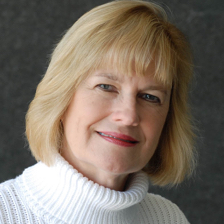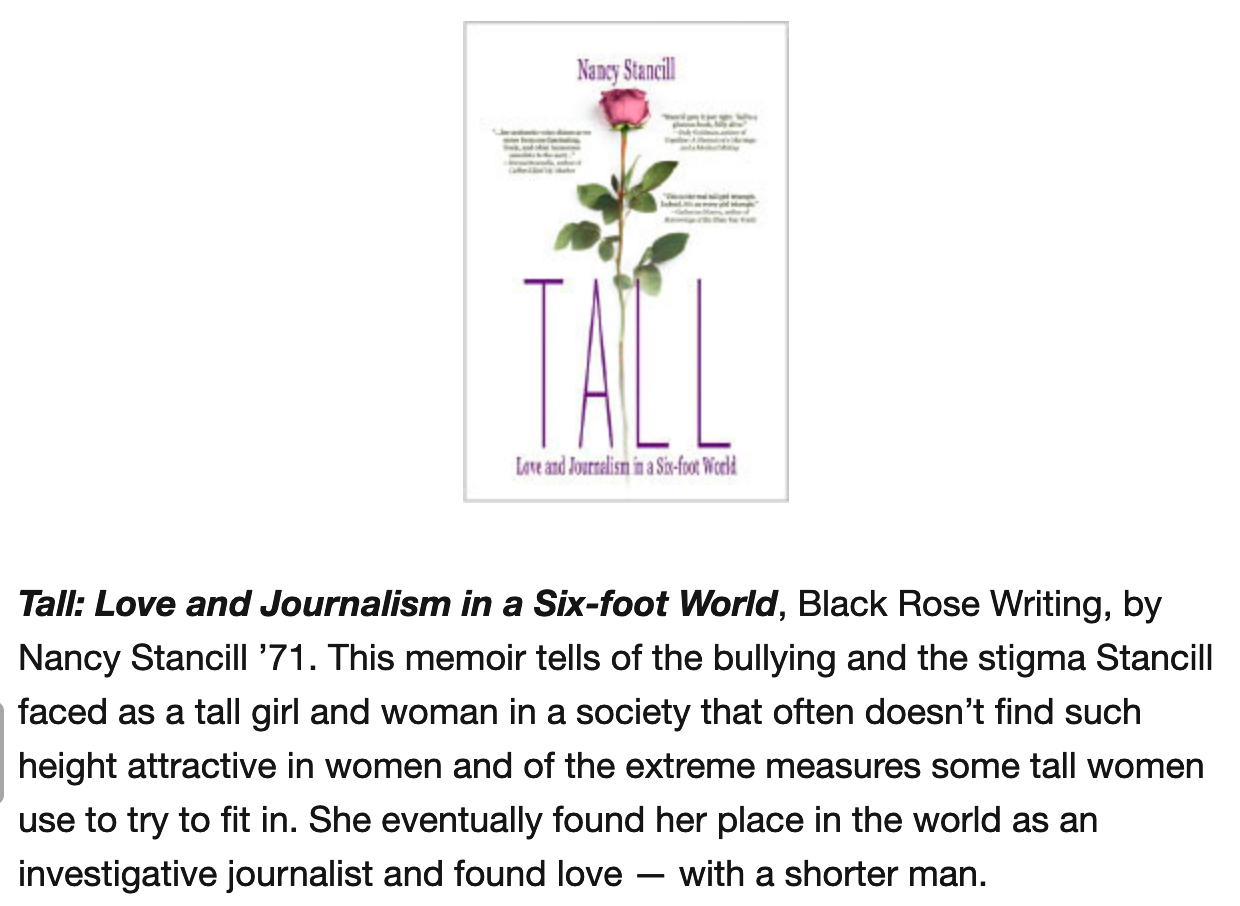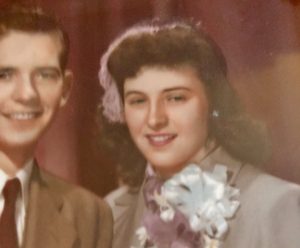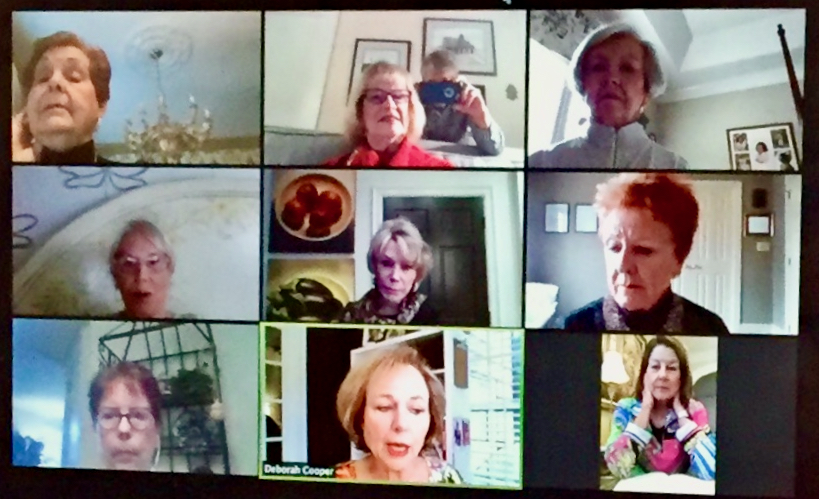
July 6, 2023
First published July 5 at Cully Perlman’s NovelMasterClass.com’s blog under the headline “GUEST POST: Writing Memoir: Nancy Stancill’s TALL: Love and Journalism in a Six-foot World.”
After writing two of a trilogy of novels, I needed a break. I was attracted to the idea of writing a memoir because I’d recently become a grandmother. I thought it would be valuable to leave something behind so that my granddaughter could know me better.
There were other reasons – two that fuel many memoirs – writing to exorcise old ghosts and to know oneself better. Those were also part of my thinking.
 Even seasoned writers get confused about the difference between autobiographies and memoirs. An autobiography is a full account of someone’s life, usually written in chronological order. A memoir has a theme and often a situation that the author overcame. It can be written in chronological order or with flashbacks.
Even seasoned writers get confused about the difference between autobiographies and memoirs. An autobiography is a full account of someone’s life, usually written in chronological order. A memoir has a theme and often a situation that the author overcame. It can be written in chronological order or with flashbacks.
I had no illusions that anyone would want to read an autobiography written by me. I wasn’t famous or notorious, often reasons that readers buy autobiographies. But I had what I thought was a decent angle for a memoir – how a shy, six-foot-tall woman navigates her life and overcomes negative feelings about her tallness. So Tall: Love and Journalism in a Six-foot World was born.
The memoir is short, just 126 pages, and covers several periods of my life – my awkward teenage years, my life-changing college experiences and my emergence as a journalist and fiction writer. There are also personal stories of breaking an engagement, falling in love with the wrong man and finally finding the man I would marry. There are summaries of some of my best stories as an investigative reporter and how I became a fiction writer.
I expected to spend more time and effort on the memoir, but my longtime publisher wanted to fill an end-of-the-year slot with one of his “established writers.” I had a draft, but it was far from polished, and I had to rush through a revision to meet the deadline. I regret that decision because I think the memoir could have been better with more thought and revisions.
Still, I’m not unhappy with the book because I think it shows how I grew and changed over the years, especially through a decision to become a journalist. There’s no room in a reporter’s life for reticence or self-consciousness.
Readers of memoirs are looking for authentic personal stories and I gave them two experiences that had been intensely private – my struggle with infertility and a painful bout with post-partum depression. The love stories I included were also candid and, I thought, illuminating of my personal growth.
I dedicated the book to my parents, but included a special section thanking the editors that taught me so much about becoming a journalist. I sent them each a personalized copy that they seemed to appreciate.
In the time of Covid, it was difficult to publicize the book, so I did the minimum – send a blast email to friends, put teasers on Facebook, but made comparatively few efforts compared with previous books. It probably didn’t sell many copies (sometimes it’s difficult to tell) but I got a lot of personal satisfaction from doing it.
I have a friend, an excellent, prolific writer, who has published three memoirs – all on different situations she’s encountered during her eighty years. All three are fascinating.
But I doubt if I have another memoir in me. I wrote about the major theme of my life and the book somehow took the last sting of being tall out of me.
More importantly, it showed me what a rich career and absorbing life I’d been lucky enough to experience. I’m in my 70s now and still having adventures and fun, but it’s great to look back on my twenties to sixties and think about those (mostly) halcyon days.
If you’re a writer and would like to take the time and energy to reflect on your life, I’d definitely recommend a memoir.
– – –
Nancy Stancill spent 38 years as a newspaper reporter and editor before she began writing fiction full-time. She was an award-winning investigative reporter at the Houston Chronicle and the Charlotte (N.C.) Observer and worked as a reporter and editor at other newspapers in Texas, Virginia and California. She is the author of the novels, Saving Texas, and Winning Texas.


 Overwhelmed
Overwhelmed